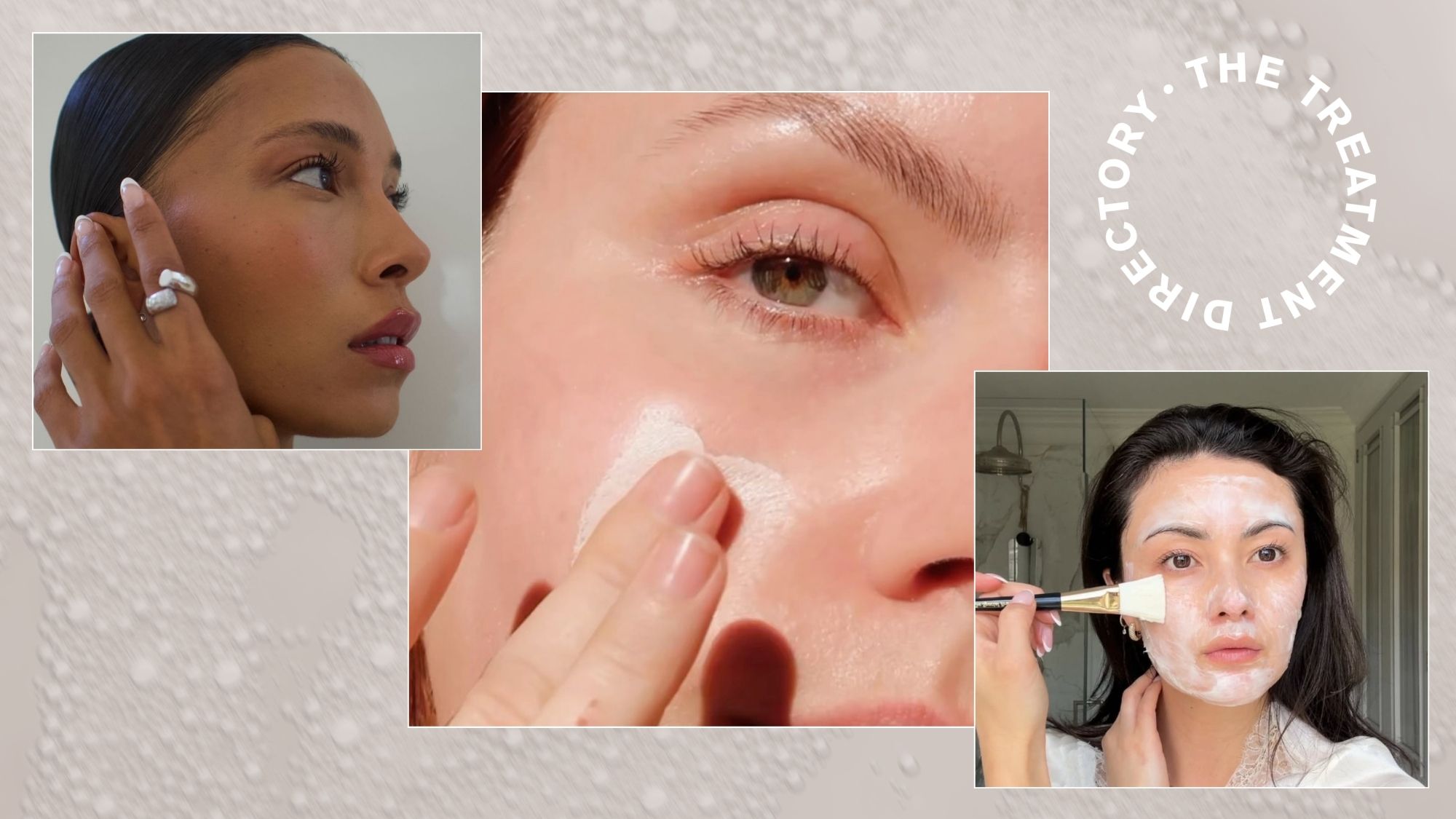
If you keep tabs on the latest beauty buzzwords, chances are you’ve heard whispers about exosomes.
The ingredient has steadily been making its way from medical journals into skincare marketing, and lately, it seems to be everywhere, from high-tech facials to luxury serums. But what exactly are exosomes? And do you need them in your skincare routine?
In the simplest sense, exosomes are naturally occurring "messengers" that play a key role in how our cells communicate and repair themselves. In the skincare world, that translates into a potential game-changer for rejuvenation, healing and glow. Sounds too good to be true? Well, here’s the catch. Whilst exosomes are undeniably trending, the science is still evolving. Research into how they work, what they can do and how best to deliver them safely into the skin is very much ongoing.
Currently, the most compelling results are achieved through in-clinic treatments, where exosomes are applied after procedures such as microneedling or laser procedures to accelerate recovery and enhance results. Naturally, skincare brands have taken notice, and a wave of at-home products infused with exosomes has started to hit the market, promising some of the same benefits, like improved skin texture, radiance and repair.
The difference? These exosomes are typically lab-grown or plant-derived, whereas those used in professional treatments are usually harvested from actual human stem cells. This means you should expect more gradual changes rather than overnight transformations. To cut through the hype, I spoke with dermatologist Sonia Khorana, who shared her expert perspective on how exosomes work, what's really worth investing in and where the research is headed.
Here's what experts think you need to know about the ingredient that’s shaping up to be one of 2025's biggest beauty talking points.
What Are Exosomes?
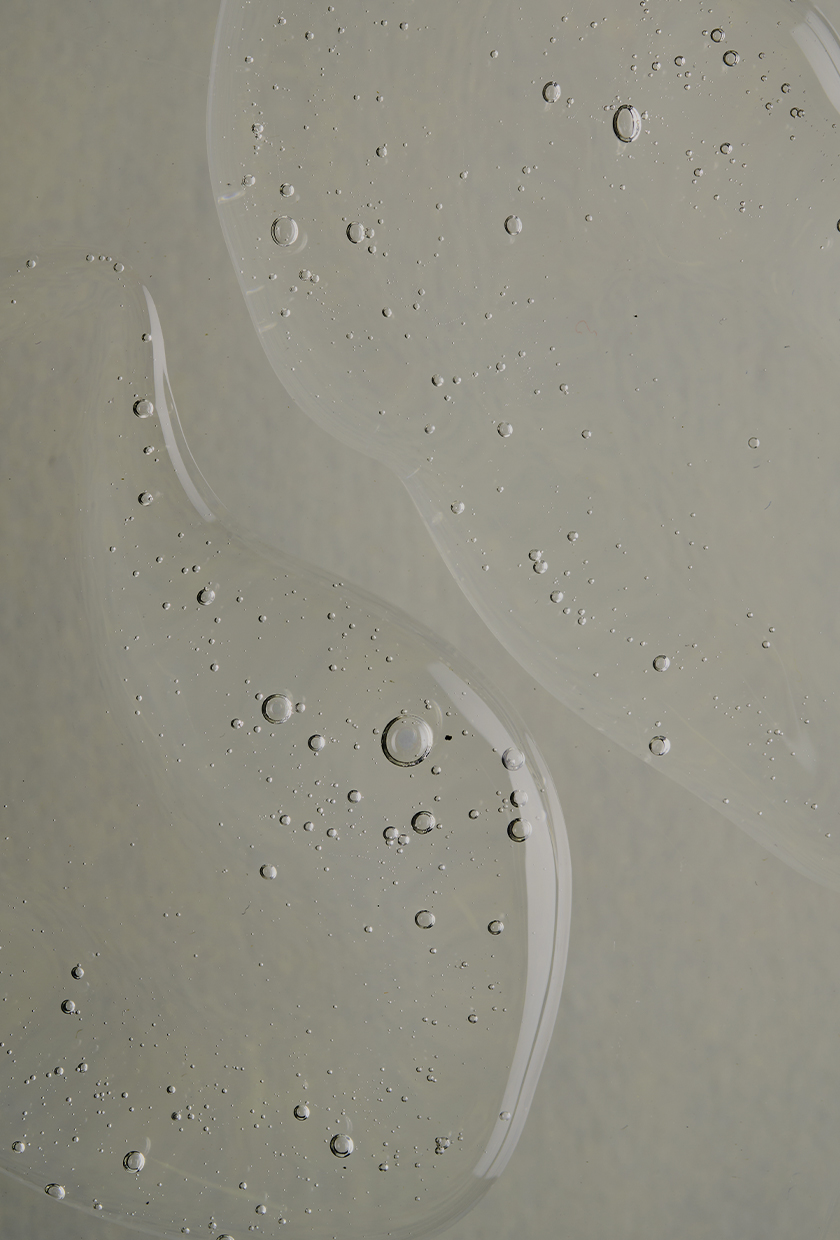
"Exosomes are tiny, naturally occurring messengers that our cells release to communicate with one another," says Khorana. "They carry signals such as proteins, lipids and genetic material, which can influence how surrounding cells behave." Essentially, think of exosomes as a courier service carrying a cargo of bioactive proteins, growth factors and nucleic acids that signal skin cells to renew and repair.
How Do Exosomes Benefit Skin?
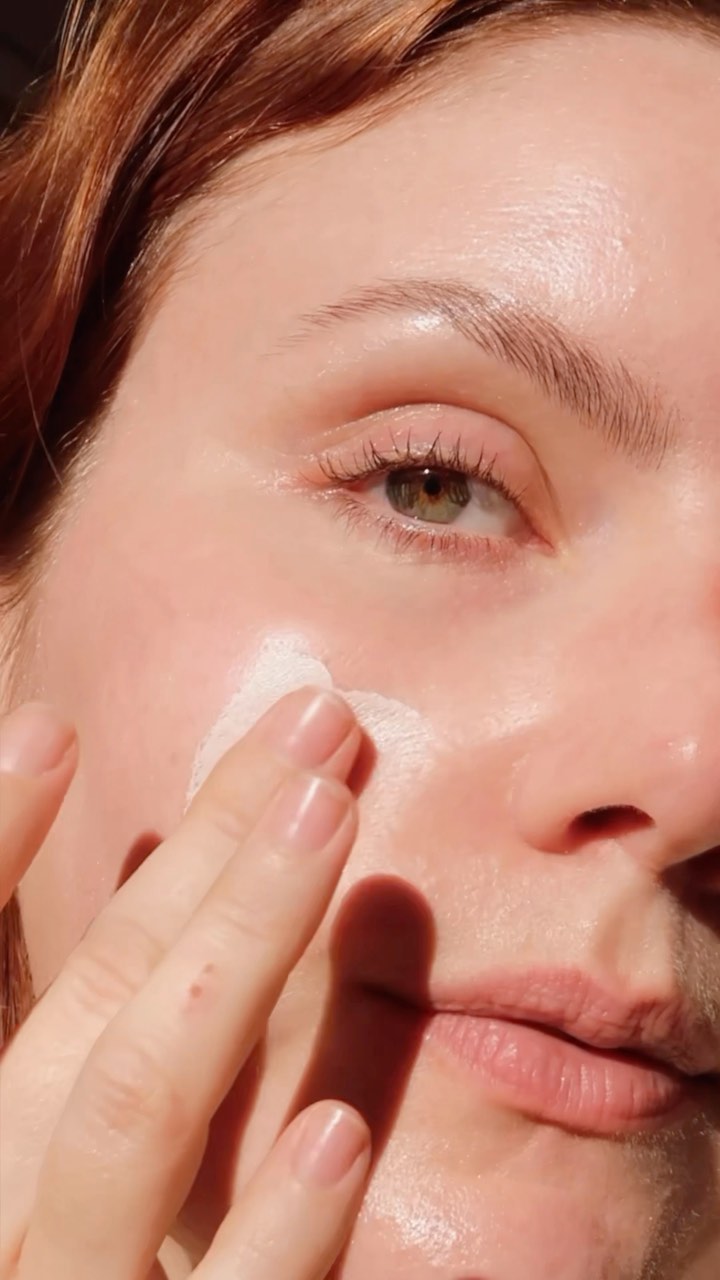
"Exosomes… help skin cells 'talk' to each other," explains Khorana. "They can encourage repair, calm down inflammation and stimulate collagen and elastin, which are key for smoother, firmer skin. In short, they support the skin’s natural healing and regeneration processes."
This means that exosomes can reduce wound healing times, noticeably reduce the appearance of age-related pigmentation, increase firmness, reduce fine lines and wrinkles, hydrate and nourish the skin and promote the production of collagen and elastin.
How Are Exosomes Used in Professional Treatments?
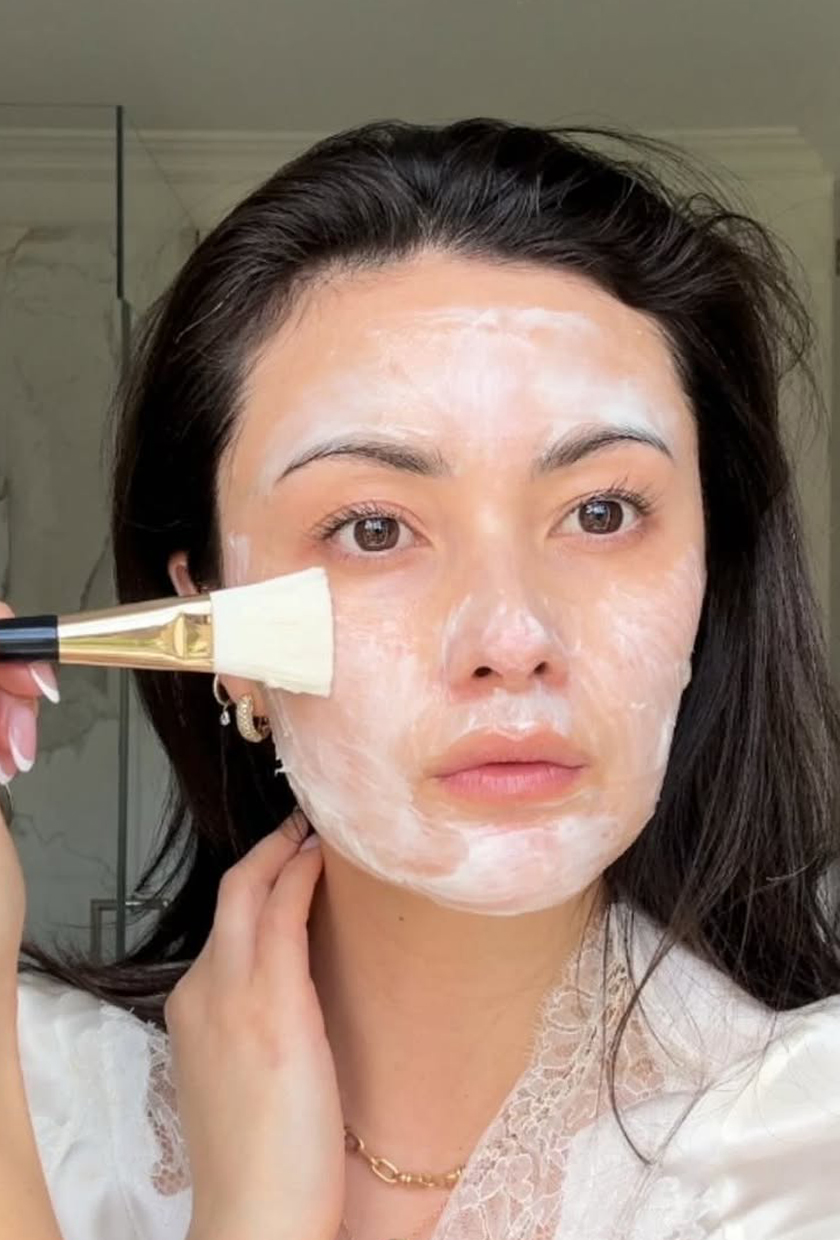
According to Khorana, in aesthetics, exosomes are being explored for all of these skin benefits. "The idea is that by delivering these cellular messages, exosomes may help the skin recover more efficiently and appear healthier," she explains. "They are usually applied to the skin after treatments that create tiny micro-channels, like microneedling, lasers or radiofrequency. This allows them to penetrate more effectively and boost healing, reduce redness and enhance collagen stimulation. They’re not a standalone cure, but rather an add-on that can speed recovery and optimise results."
Are Lab-Grown or Plant-Derived Exosomes Still Effective?
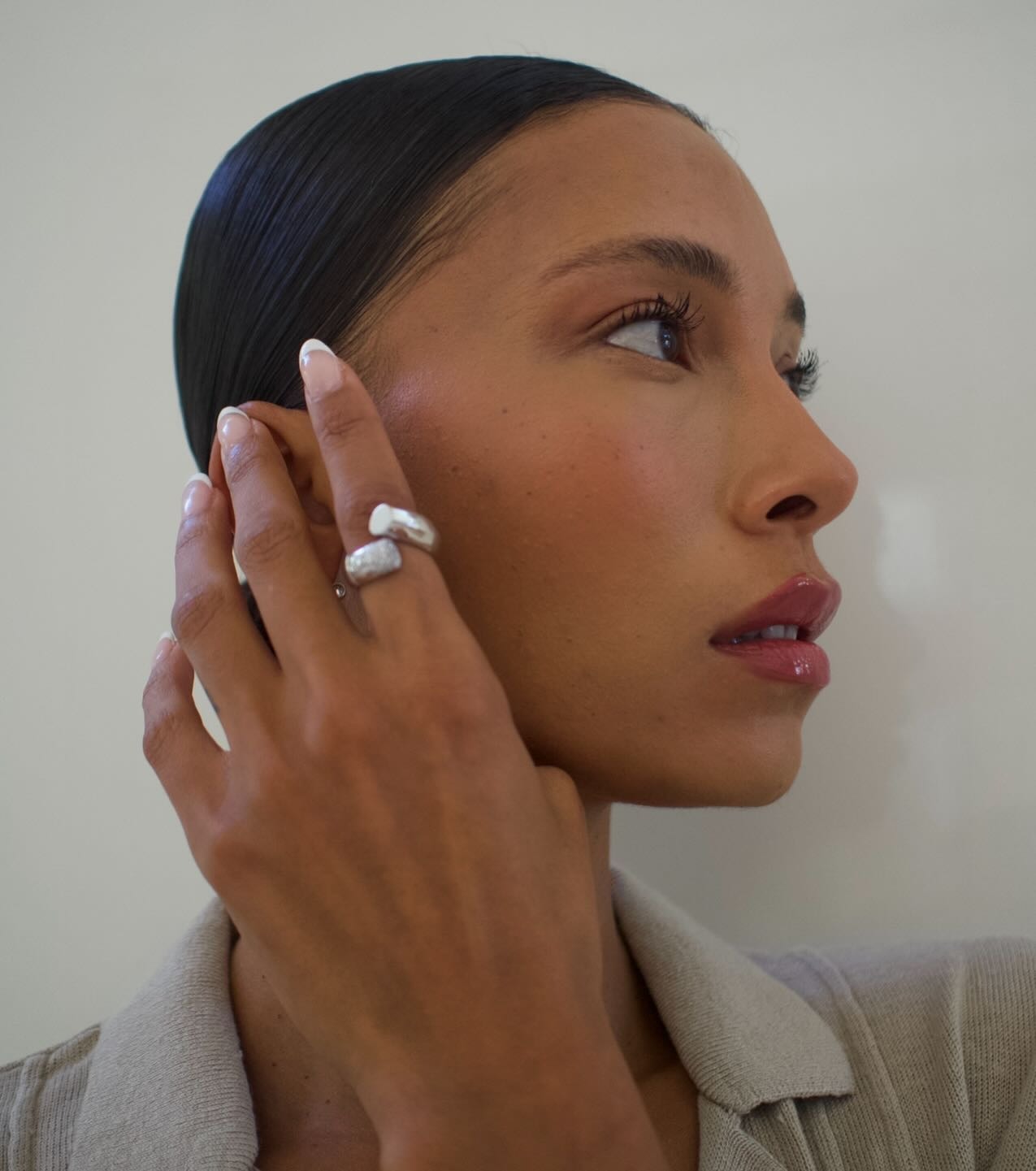
"Whilst they don’t carry the exact same growth factors and signals as animal-derived exosomes, lab-grown or plant-derived exosomes can mimic some of their regenerative properties," says Khorana. "Many of these formulas are designed to deliver antioxidants, peptides and anti-inflammatory signals that support repair and collagen production. The science is still emerging, but they are considered safer and more widely acceptable from a regulatory and ethical standpoint."
"The main challenges with human or animal-derived exosomes are safety, consistency and regulation," she adds. "Because they come from biological sources, there’s a theoretical risk of transmitting infections, and the exact content of each batch can vary. There are also significant regulatory and ethical issues around sourcing and using them in treatments, which is why lab-engineered or plant-derived alternatives are often used."
Can Topical Exosomes Benefit the Skin?
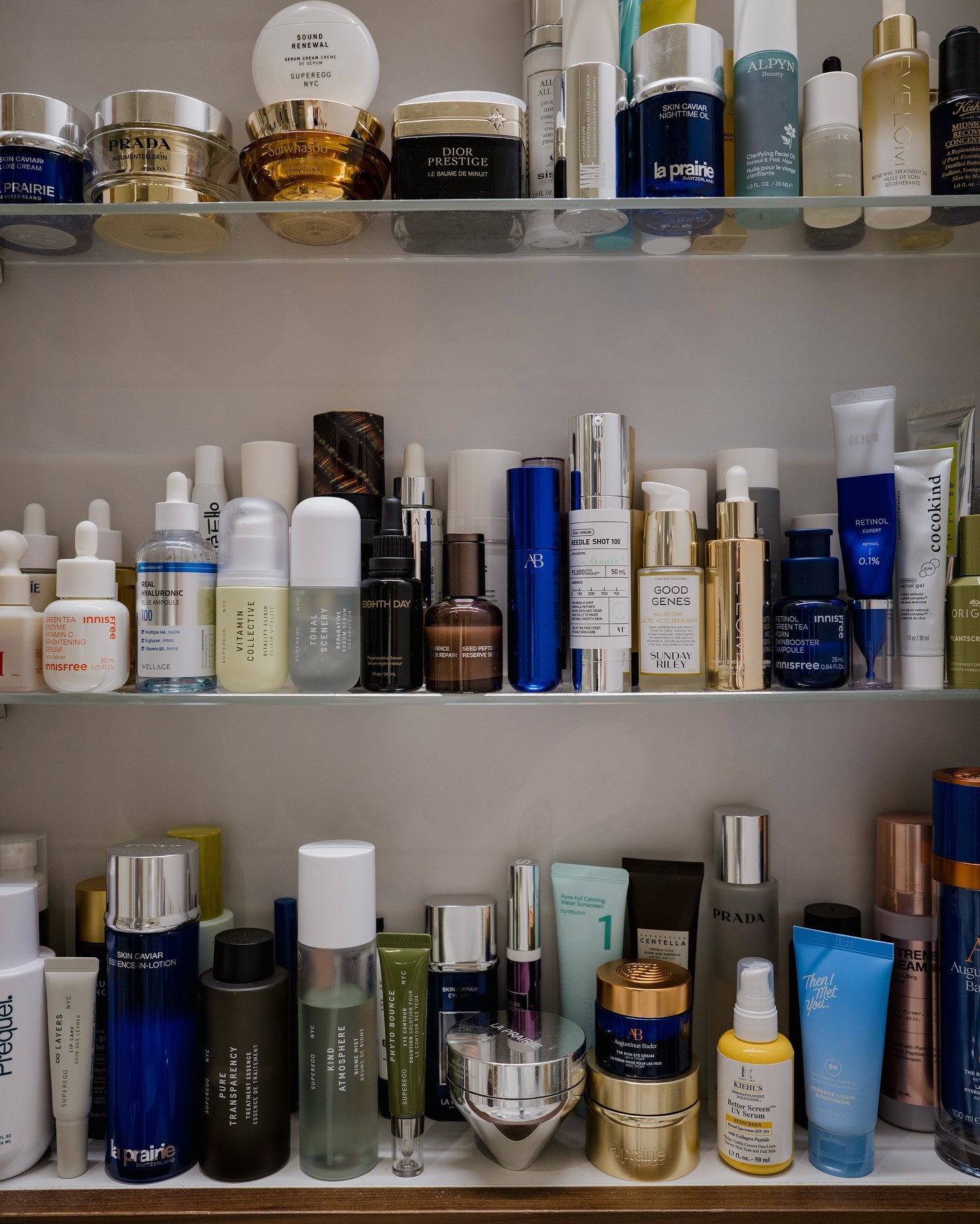
"Topical products with exosomes are an exciting area, but the science is still early," says Khorana. "In theory, exosomes could deliver growth factors and signalling molecules that support repair and regeneration, but their stability and ability to penetrate the skin barrier are big challenges. Most of the evidence for exosome benefits comes from professional in-clinic treatments, where they can be delivered more effectively. For topical products, we need more robust clinical studies before we can say with confidence how much benefit they offer."
Shop the Best Exosome Skincare Products
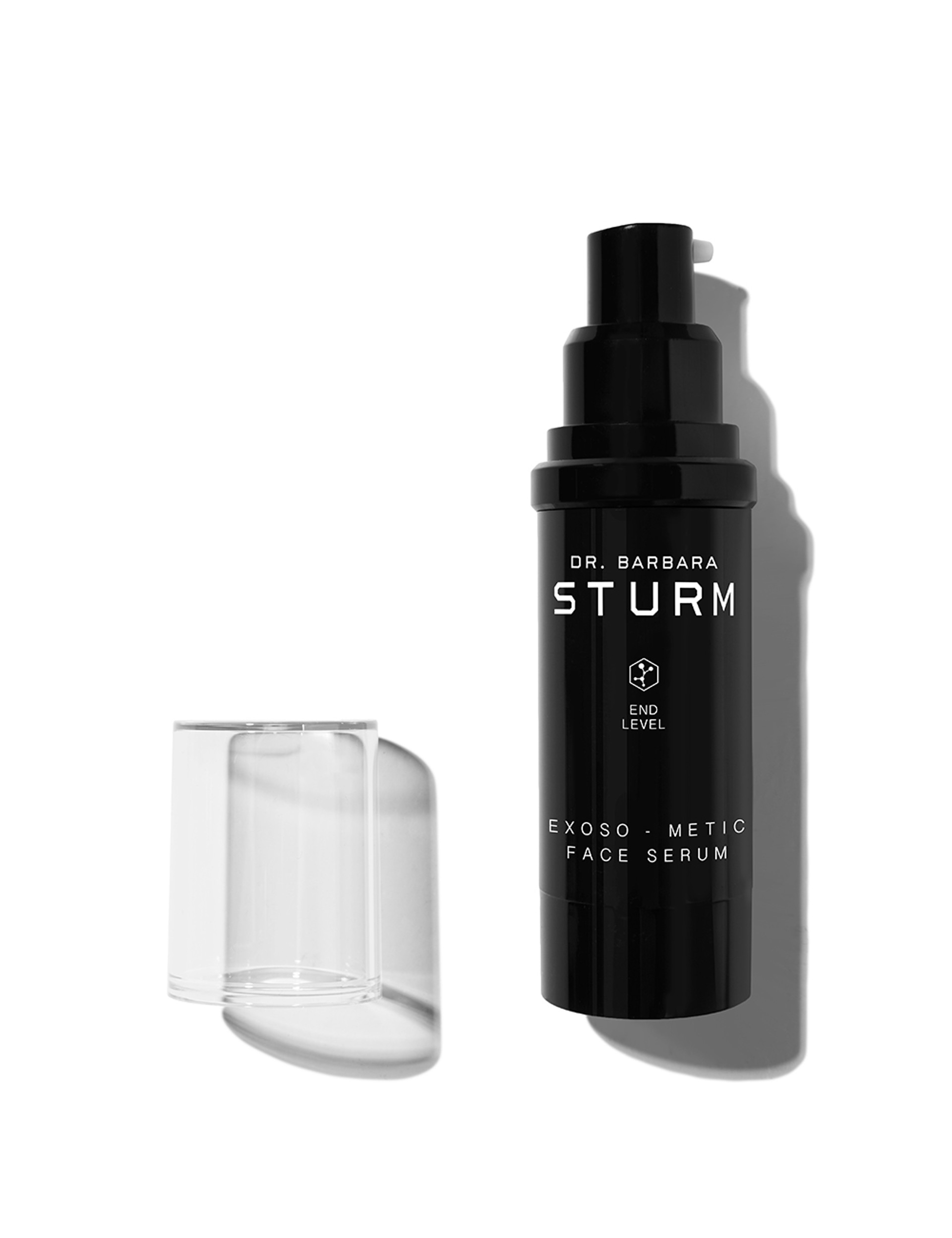
This serum may be pricey, but users see the benefits in just a few weeks. It draws upon lab-synthesised exosomes, which contain growth factors such as proteins, peptides, lipids, RNA (ribonucleic acid, which plays a part in protein production) and DNA to help encourage skin regeneration. The results? Firmer, brighter, plumper skin.
Pros
- Luxurious formula
Cons
- Expensive price point
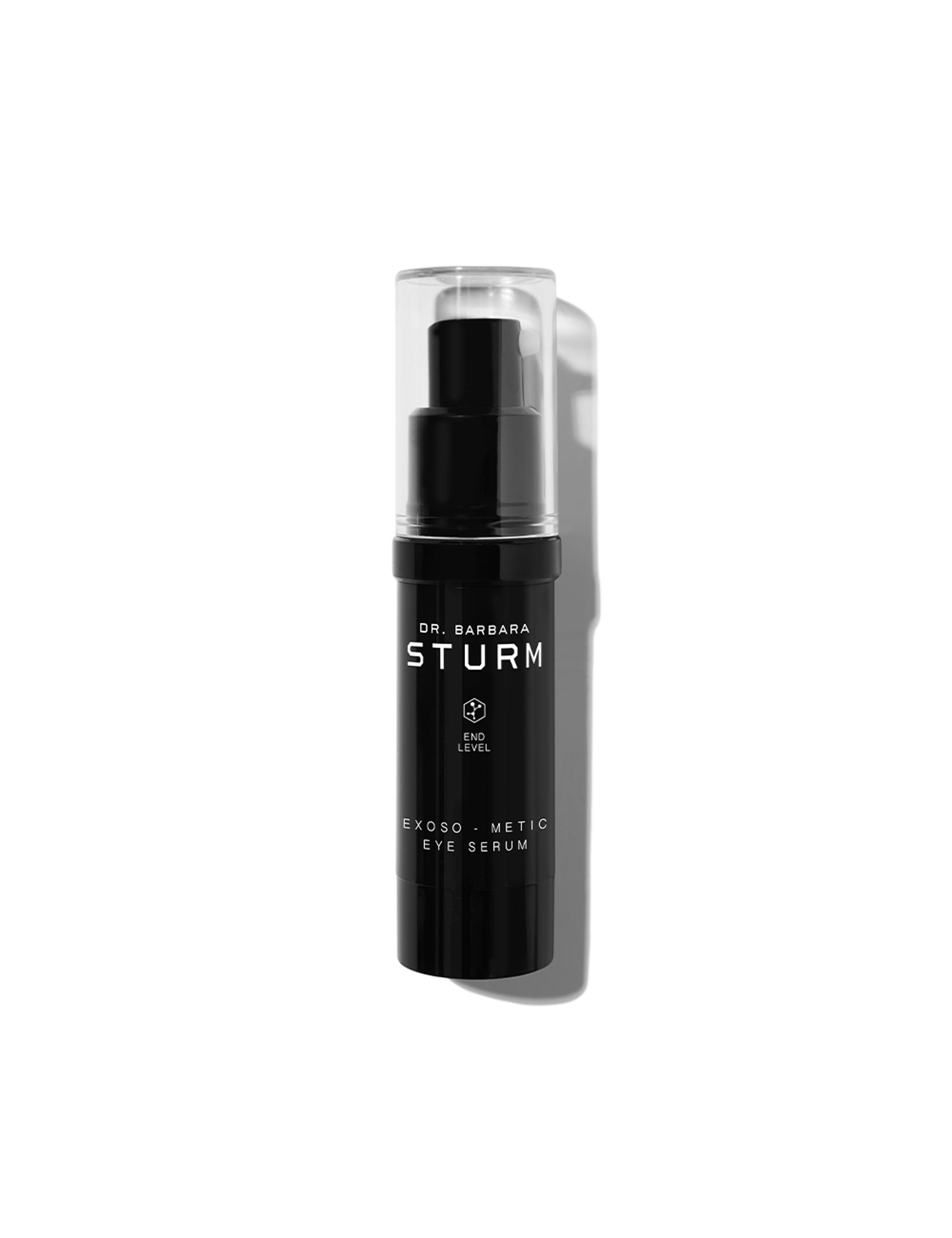
This eye-specific version of the above serum is a real multitasker, helping to reduce the appearance of dark circles and crow's feet whilst smoothing and hydrating the delicate eye area. In a consumer study, 84% of users saw a reduction in fine lines and wrinkles around the eyes.
Pros
- Formulated specifically for the eye area
Cons
- Expensive price point
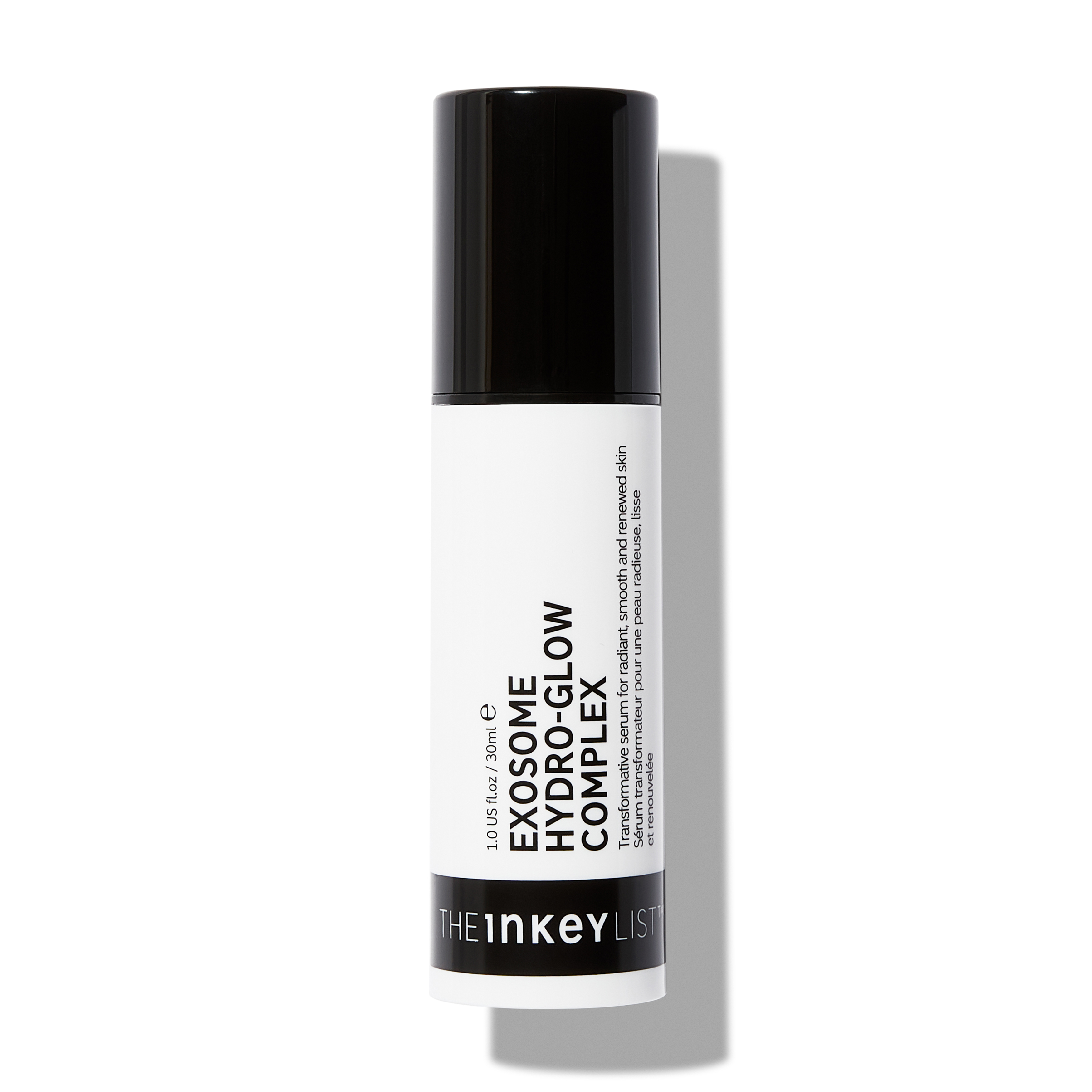
The most affordable and accessible exosome serum on the market is The Inkey List Exosome Hydro-Glow Complex. The formula is powered by plant-derived exosomes sourced from Centella asiatica (Cica). What's more, it's packed with a cocktail of other hero ingredients, including prickly pear extract, hyaluronic acid and ectoin, which gives skin an immediate hydration boost and glow.
Pros
- Affordable price point
- Easy to get hold of
- Hydrating base formula
Cons
- May take time to see long-term results
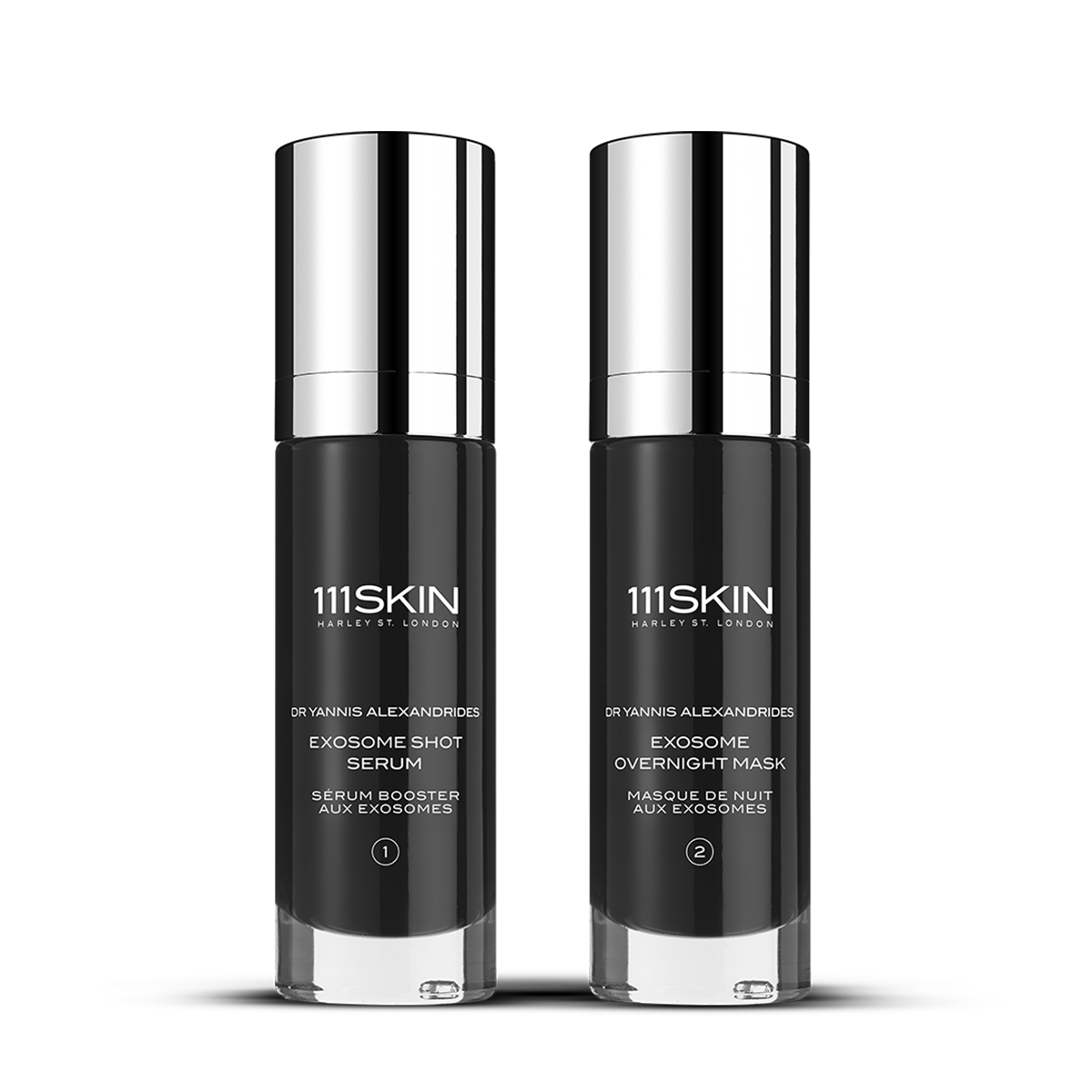
Designed to be used in conjunction as part of a four-week treatment, this serum and leave-on face mask duo contains bacterial, microbiome-derived exosomes from Lactobacillus ferment. After four weeks, 97% of users found that their skin appeared visibly lifted. Basically, it's a facial in a bottle (or two).
Pros
- Suitable for all skin types
Cons
- Expensive price point
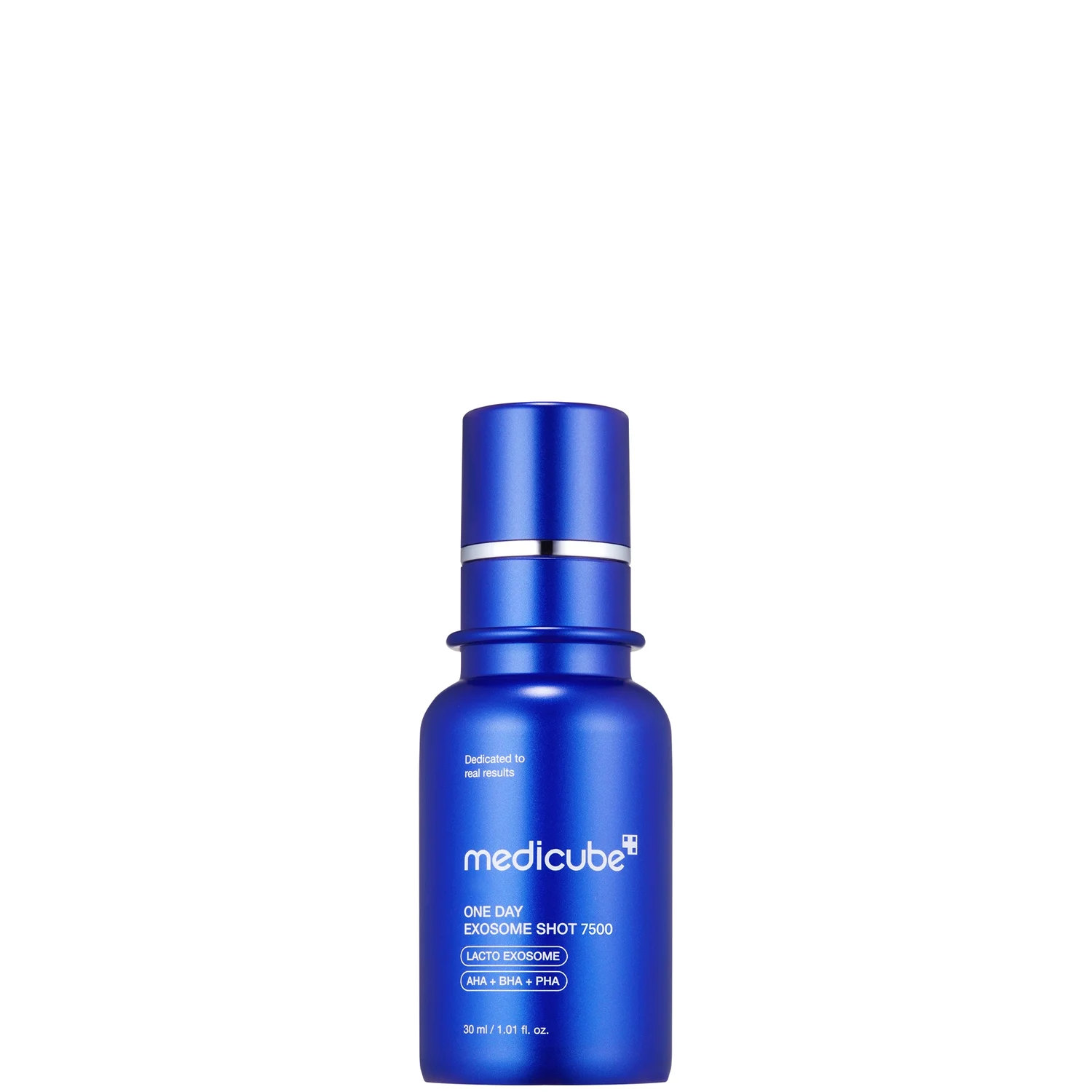
A K-beauty best-seller, this Medicube serum is also powered by lactobacillus-derived exosomes, this time delivered via "liquid microneedles". As well as giving long-term skin-boosting benefits, it also brightens the complexion thanks to a blend of niacinamide and gentle chemical exfoliants.
Pros
- Affordable price point
- Gives a glowy finish
Cons
- May take time to see long-term results
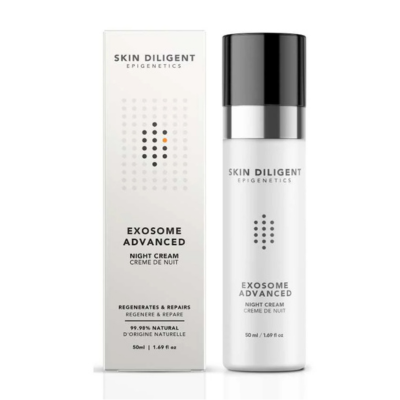
Ideal for mature and dry skin, this rich moisturiser also contains lactobacillus-derived exosomes to support skin cell function and health.
Pros
- Light, non-greasy formula
Cons
- Not available from many stockists
Why Trust Us
At Who What Wear UK, we know that beauty isn’t one-size-fits-all. Our editors have tested thousands of products over the years—spanning skincare, makeup, hair and nails—and work closely with trusted experts including dermatologists, makeup artists and leading industry insiders to ensure every guide is well-researched, inclusive and relevant to you.
We focus on formulas that deliver, whether they’re affordable favourites or luxury investments. Our product selection is based on tangible results, ingredient know-how and what we’d truly recommend to a friend.
Grace Day is a beauty editor and content creator. She has over 10 years of beauty-industry experience, spanning editorial, retail, and e-commerce, which gives her a unique understanding into how people shop for their beauty routines.
While studying for a history degree (specialising in the history of beauty) and working as a beauty adviser in department stores, Grace started writing her own beauty blog in order to share the products she discovered while dealing with acne. After graduating, she moved to Beauty Bay as beauty editor and content manager. Grace is currently a beauty contributor to Who What Wear. She has also written for Hypebae and PopSugar and works as a brand consultant and copywriter.